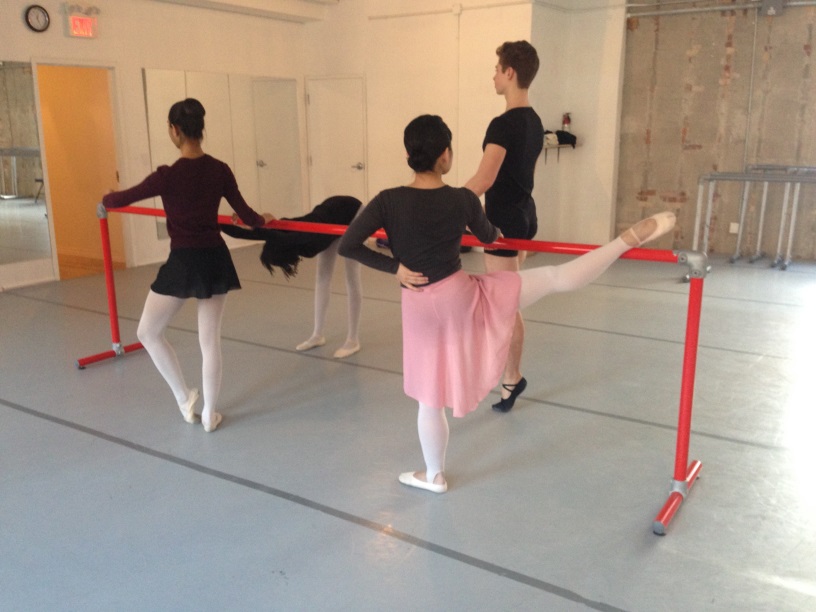FAQ (Frequently Asked Questions):
Q. Why is ballet the focus of your program?
A. The study of ballet increases flexibility, strength without building bulk, quickness of movement, coordination, balance, and most importantly, focus. With a strong background in ballet, it is much easier to move to other forms of dance.
Q. What Syllabus do you teach?
A. Our training uses no single school or syllabus of dance. Of course our staff are aware of and have studied all major syllabi and utilize the best merits of each when structuring classes. Every method or syllabus has many merits, but today's dancer is expected to be versatile enough to not be locked into any single style.
Q.Then, what about exams??
A. Preparation for the next exam can obscure the dance student's ultimate goal of achieving a level of technical mastery to dance on stage at a profesional level with the requisite artistry and technical prowess to enthrall an audience. Good marks on an exam can never guarantee this, and bad marks on an exam can falsely impart a sense of inferiority in an otherwise excellent student. Only dedicated, detailed practice of the technique actually used in performance will prepare the student for performance! So, we choose instead to focus on a logical, repertoire-based approach where the only 'exams' are how well each student can perform repertoire from the classical and contemporary cannons, and how professional an outlook they can maintain while striving for excellence.
All technical considerations flow from the requirements of the repertoire being studied, and discovering the most efficiently clear way to achieve a great performance, not great marks in an exam.
Q. Why is it recommended to take so many classes in a child's older years?
A. By that time, the physical demands of ballet training are such that frequent attendance is required. Bluntly? Ballet at this level is hard! Practice is necessary to learn the widening vocabulary and demands of more advanced technique and repertoire, and not to begin to fall behind physically. Plus, at these ages many styles will be taught so the number of classes a student can potentially attend per week increases.
Q. What happens if my child misses a class?
A. Please ensure that your child makes up the missed class before the term's end.
Q. Where can I purchase dance-wear?
A. Malabar's is located right next door to Dance Teq Centre, immediately north on McCaul. They sell all necessary items, and many of their friendly knowledgeable staff are also Dance Teq dancers.
